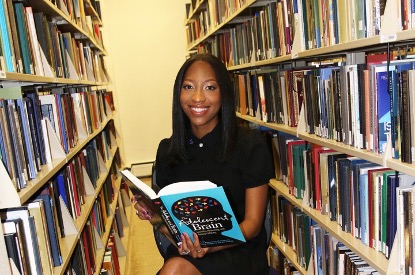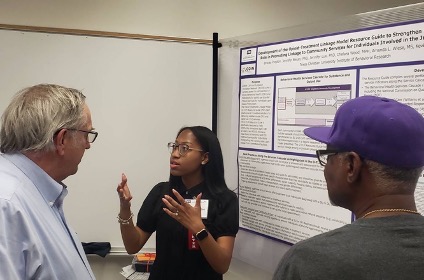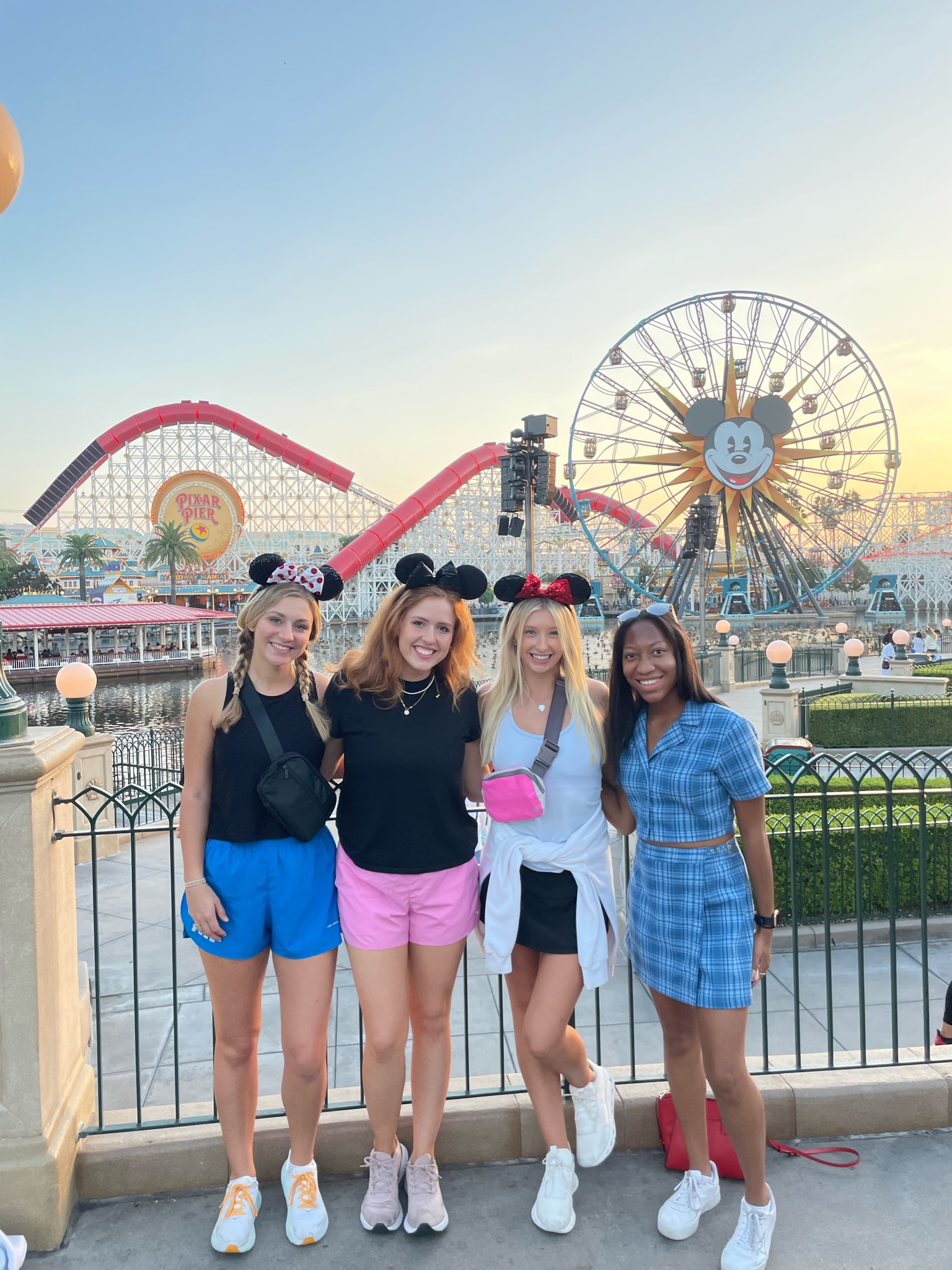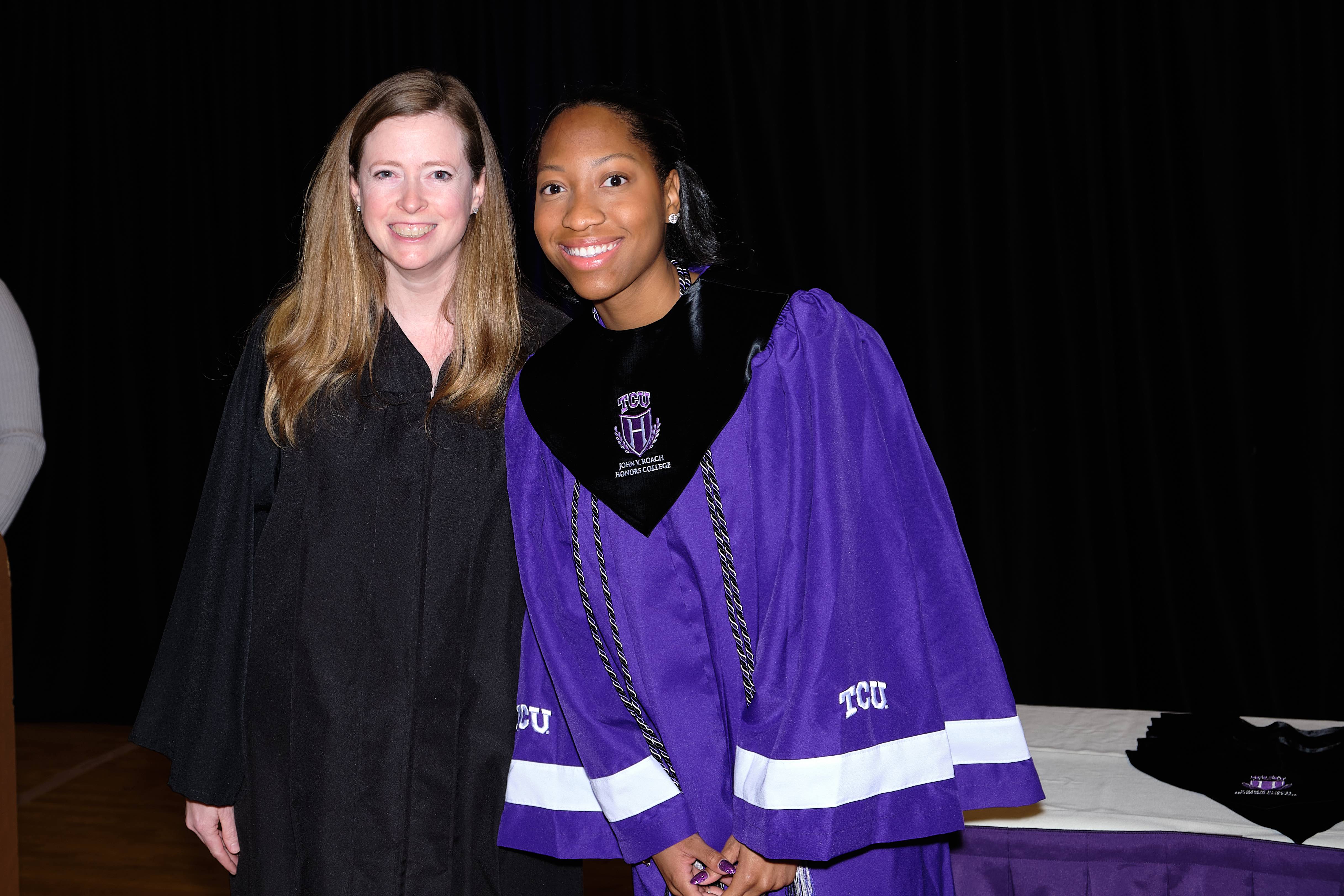
Brooke Preston ’22 graduated as an Honors Laureate in December after tackling her undergraduate studies at TCU in just two and a half years. Now, she’s extending her research and education in pursuit of a more equitable post-incarceration system. We spoke with her about her research at TCU and her future endeavors.
Research at TCU

Brooke said psychology chose her at a young age, but it wasn’t until she arrived at TCU that she narrowed her focus down by adding a minor in criminal justice. In her the fall of her second year, Brooke started as a research apprentice the Institute of Behavioral Research. Later that spring, she joined the Student Overview of Applied Research (SOAR) Lab. The lab provides opportunities for undergraduate students to experience applied research, interactive activities and participate in networking opportunities.

Since graduating, Brooke has continued on as a research assistant at the Institute of Behavioral Research. She is a part of three projects all related to substance use among justice involved individuals with two of the projects focusing on youth. Brooke’s team provides intervention in a gamified way to youth and, in some cases, their caregiver. The other project looks at the connections between community corrections offices, community behavioral health services and Medications for Opioid Use Disorder services in three states: Illinois, New Mexico and Texas. Brooke’s team identifies the challenges between their communication and helps provide solutions.
A pattern that Brooke noticed through her research is that people end up incarcerated because of their substance use, but prison does not provide adequate support to overcome addiction.

“A lot of times people with substance use issues will end up in the prison system, and they won’t be getting help for their substance use,” Brooke said. “Working with this population has opened my eyes on how this is truly a punishment system, even though there is supposed to be the pillar of rehabilitation. We are supposed to release these people to be productive members of society, but in reality, that aspect is lacking.”
After release, these folks end up back in the system due to their addiction. She learned to critically analyze these systems further in her Honors courses.
Honors Experience
As a part of Brooke’s Honors project, she conducted interviews with two individuals who had recently been released from prison. The interviews revealed systemic and systematic issues with post-incarceration. For example, gaining employment is necessary to be released from probation or a halfway house. However, most individuals struggle to find jobs because convicted felons cannot be hired in most workplaces. The rules and stigma surrounding post-incarceration employment create a cycle that pipes people back into the criminal justice system.

“One of the craziest things to me is that in some places you can get a barber certification while you’re in prison, but you can’t practice once you are released because convicted felons aren’t allowed to be barbers,” stated Brooke.
Another salient experience for Brooke was in the Honors class “Language, Communication, & Cultural Identity: The Psychosocial Self.” The class focused on emerging adulthood and the concepts used to define identity throughout one’s life. This culminated in an interview with someone whose point of view is different than your own. Brooke interviewed her mom’s coworker’s husband.
“It was really interesting to sit down with someone who I knew little about and get to share his life story with the class,” stated Brooke. “We interact with people on such a surface level, so sitting down for an hour and getting to hear about some of the struggles of someone during the time they were our age was really impactful.”
One of the most poignant pieces of advice shared with Brooke was, “Get a dog, and it will teach you responsibility.” While Brooke hasn’t taken that life step yet, she is preparing to move onto her next chapter.
What’s Next?
When asked how Honors at TCU prepared her for graduate school Brooke shared, “What I liked most about Honors classes and what transferred to every other thing that I’ve done is the discussion-based classes. It really helped me learn the communication piece. You might have these grandiose ideas in your head but if you can’t translate them to someone or effectively have a discussion about what you’re reading, do you actually know it?” Additionally, Brooke said her classes prepared her to discuss issues and listen to other with differing viewpoints.
Currently, Brooke is applying to graduate programs for experimental psych and public policy. After working with the post-incarcerated population, she is passionate about implementing systems that will support people when they are released from prison.
“With improving the post-incarceration outcomes, these people could contribute so much to society, and they are really inhibited because of the stigmas and barriers surrounding them,” said Brooke. “Everyone’s life will be improved by having more useful contributors to society.”
